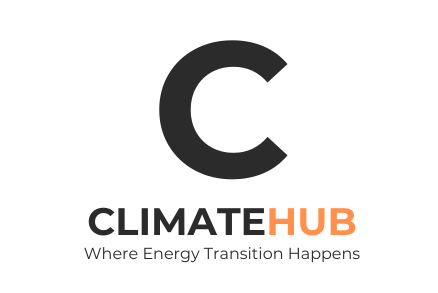- ClimateHub
- Posts
- ClimateTech must answer these 3 questions to win the minds of the energy transition community
ClimateTech must answer these 3 questions to win the minds of the energy transition community
What investors should learn from the previous bubbles
Hey! Welcome to the ClimateHub community. We are climate tech enthusiasts, passionate about innovative solutions with a high impact on energy transition. Our newsletter is packed with updates, explainers, product reviews, and practical insights into all climate, sustainability, and energy technologies. Find us at climatehub.tech
A sustainable world — powered by renewable energy.
Investors are demanding it. Policymakers are legislating for it. Oil and gas majors are changing their business models to prepare for it.
The transition to renewable energy is happening and it will continue to drive tremendous growth in wind, solar, energy storage, heating, agriculture, mobility, and a number of other technologies we use every day.
Climate technology is once again the hottest sector for venture capitalists — the media buzz and entrepreneurial activity have soared at an astounding rate.
This is exciting news. Yet increased investment also means more pressure on owners and operators of renewable energy assets. You’re being asked to scale up faster and squeeze more energy from your assets — with fewer people and tighter budgets.
Ignoring the flowery political & populistic speech, the ultimate issue is that energy transition is expensive and time-consuming. Neither industry nor consumers can afford to pay 10x higher bills for electricity and heat. And nobody wants to wait 30 years to see the results.
All the while, more entrants into renewables are increasing competition, making it even more important that your projects are generating the most energy and delivering the greatest profits possible.
To succeed, you need software that’s designed to empower you and your team to collaborate, automate critical workflows, and make the best decisions to maximize asset returns.
But … it’s confusing…
Fragmentation and complexity of the climate tech market confuses investors, businesses and decision-makers and thus endangers the speed of energy transition
Every player in the energy industry is asking the same questions every day:
📍Question 1 - Which solutions are best to achieve Net Zero?
Climate investors, governments, and policymakers struggle to navigate among dispersed and technologically complex energy transition solutions.
Which solution shall we invest in?
Which technology has the biggest potential?
What can we scale and where?
Climate investments went through a series of bubbles in the past decades. Carbon capture, biofuels, nuclear fusion. Each new technology brought tons of capital, heaps of cash, and .. eventually disappointment. Today, however, we have a unique (and last) chance to do it well.
Each domain, whether it's carbon capture, hydrogen, wind, solar, or batteries has its peculiarities, dynamics, and value chain that must the understood to succeed.
And none of these technologies is better than the other. We need a mix, in some shape and form, of all the solutions in question.
📍Question 2 - How to accelerate climate tech startup growth?
Climate change is one of the most pressing global challenges of our time, and climate tech startups have a crucial role to play in finding solutions. These innovative companies are working to reduce emissions and mitigate the impact of climate change, but in order to maximize their potential, it’s important that they have the resources and support they need to grow and scale.
Besides generic startup pitches and local initiatives, there is no unified place to gather climate startups, technologists, and climate practitioners. A lot of resource allocation goes to the sales team in sourcing clients, hosting product demos, and chasing leads. Climate tech startups want to reduce their CAC (customer acquisition costs) and get feedback on their products.
Direct outreach and a handful of climate tech VCs won't suffice in the long run.
📍Question 3 - How to increase understanding of energy transition technologies?
The energy transition is a critical aspect of addressing climate change and reducing greenhouse gas emissions. Energy transition technologies have the potential to revolutionize the way we produce, distribute, and consume energy. However, despite the benefits they offer, many people are still unaware of these technologies and their potential to contribute to a more sustainable future.
The consumer mindset is rapidly shifting towards more sustainable solutions in everyday life. Yet, climate products are very poorly indexed, and discovery is a challenge.
Questions like - how do I implement ESG reporting, how can I reduce my emissions, and how can my company be more sustainable are becoming more and more pressing. Yet, newly appointed sustainability managers are left alone in implementing carbon monitoring and reduction use cases in their companies.
ClimateHub's objective is to address these questions right on the spot and become the go-to discovery platform for climate tech solutions, enabling assessment and selection of tools to reach their climate goals.
ClimateTech product creators, both startups and established players will benefit from visibility, greater data insights from customer feedback, lead generation, and cost savings from a reduction in sales cycles.
Today, climate software is a relatively small market compared to the wider enterprise software market, however, with impressive tailwinds and significant urgency, this market is set to grow very strongly irrespective of macroeconomic conditions. To reach net zero goals, we need to accelerate the integration of climate products into every corner of the economy. Accessing and integrating the right data is the first step toward these goals. Creating a vertical platform of climate tech allows for Product-Led Growth and Customer-Led buying on both sides of the network.
